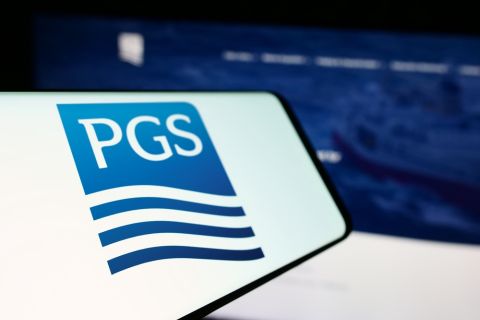Once dominated by two large players, the Gulf of Mexico helicopter market is fragmenting as smaller firms try to carve niche positions in the shallow waters where their larger rivals are ceding market share in favor of the deep water. For decades, Petroleum Helicopters Inc. and Air Logistics, an arm of Offshore Logistics, held the majority of Gulf business of transporting crews and supplies. The two companies combined still account for about 70% of the market but PHI has seen its share drop to about 40% and AirLog has about 30%. Rowan Cos.' Era Aviation has about 10% and the rest is being fought over by smaller outfits such as Omni Energy Services, Seacor and TexAir. Despite flat demand for helicopters in the Gulf, companies such as Omni and Seacor are investing in helicopters, betting that demand will pick up in the next few years. Demand is now flat. "There is a considerable transition in the helicopter market to larger floating production systems that are starting to appear," says George Gaspar, an analyst with Robert W. Baird & Co. "That activity is going to pick up in 2005 and 2006 and we are going to see the E&P companies reach toward more capacity-related aircraft." These aircraft carry more people. A slowdown in work in the North Sea may result in many of the large-hull helicopters currently operating there being shifted into the Gulf of Mexico. Such a move would put even more pressure on rates. Late last year, Omni closed on a deal to buy American Helicopters Inc. for $4.5 million in cash and long-term debt. AHI owns and operates 17 helicopters along the Texas and Louisiana coast. The deal signals Omni's desire to get into a broader range of services with its aviation division, that had previously largely catered to the seismic industry. In March, Omni bought 3.6 acres of real estate near Intracoastal City, Louisiana, to be its primary operating aviation base where it will consolidate maintenance and repair facilities. The company recently landed a five-year contract from W&T Offshore Inc. to provide offshore transportation services to 90 manned and unmanned offshore platforms. The contract is a good example of how smaller players like Omni are trying to lock in customers for longer contracts than the industry standard of a one-year deal. "We are working on trying to get longer contracts," says James Eckert, Omni chief executive officer. Staying in the shallow waters of the Gulf is part of Omni's strategy. The company does not want to compete in the deepwater market that requires larger helicopters. "We are trying to carve out our customer base by staying on the Shelf, not going deep offshore," Eckert says. Omni is turning a modest profit. It earned about $2 million in the third quarter, but the company told the market late last year it expects 2004 revenues to increase more than 50% from anticipated 2003 revenues boosted by an estimated 400% increase in aviation revenues. So far, the integration of AHI's fleet and personnel into Omni's existing fleet has gone well, Eckert adds. The company is now operating 35 helicopters and aims to grow to 40. The AHI purchase gave the company a much-needed infrastructure of offshore fueling platforms. "That was one of the main things we were looking for," Eckert says. Dominant players Not everyone is happy to see new players in the market. "I'm concerned about them coming into the market and trying to increase their market share by putting downward pressure on rates," says Dru Milke, president of AirLog. "If they are operating out there with inadequate support and something bad happens, it will be bad for the entire industry." AirLog has recently added a few new helicopters to its fleet, which now stands at about 170. Of those, about 110 are under contract, about 15 are used on an ad hoc basis and the remainder are rotating in and out of maintenance. Offshore Logistics reported a profit of $2.8 million, but that was down from $12 million in the comparable quarter. The company cited North America as a bright spot for its aviation business, with a profit margin rising to 17.9% from 15% in the year-before quarter. The improvement was despite flat flight activity during the quarter, as E&P companies' combined activity was unchanged in the Gulf. Complicating matters for big players like AirLog and PHI, which declined to be interviewed for this story, is a threatened walkout of the unionized pilots who are seeking an increase in pay and benefits. In January, AirLog made its final offer to the union, which rejected it. The two sides are at an impasse. "They are sort of in a Mexican standoff," says Gaspar. "I don't think PHI is prepared to raise pilots' salaries by very much. Offshore Logistics has made various offers to settle but they are not getting to home plate. The pilots' requests are out of sorts. They want to be treated like airline pilots." Finding new pilots has become a more difficult task after September 11. Many of the pilots that would come out of the military and go to work in the Gulf are being retained by the military for duty in places such as Iraq. Meanwhile, in business since 1949-around the time Kerr-McGee drilled the first offshore well-PHI has seen the largest erosion of market share in the Gulf helicopter market. It once held about 70%. The company is notoriously close-mouthed about its operations, in large part because its chairman, Al Gonsoulin, holds 52% of the voting shares and market float is meager. PHI operates 225 helicopters but not all of those are dedicated to the offshore oil business. They also work for the healthcare industry and the government. Operating revenues from the domestic oil business accounted for about 68% of the company's total revenues in 2003, according to SEC filings. But PHI laid off about 60 workers in September, most of which were employees of its U.S. business, taking a $2.1-million hit against earnings for severance costs. The company is profitable, but profits and revenues are sliding. In 2003, it had net income of $1.19 million, or 21 cents per share, on revenues of $269 million. That is compared with net income of $9.2 million, or $1.70 per share, on revenues of $283 million the previous year. PHI attributes the decline, in part, to a continuing reduction of flight hours: in 2003, flight hours totaled 114,769 compared with 136,237 in 2002 and 148,563 in 2001. Other players Era Aviation has focused its efforts on serving companies that are doing business in the Gulf's deep water, says James Shugart, senior vice president and general manager, Gulf Coast division. He believes 2003 will turn out to be the low point in this cycle of the Gulf helicopter market. 2004 has already shown some slight improvement. During the winter months when days are shorter, helicopters have less flight time and most are not rated for instrument flying at night. Other factors such as tropical storms in the late summer and early fall can have a huge effect on companies' revenues and profits. Era currently operates about 50 aircraft. As ownership of oil and gas properties on the shelf has shifted from the majors to independents, helicopter companies with long histories of dealing with majors such as Shell Oil and BP are moving their focus to the deeper waters. "That gives some of the smaller helicopter companies that operate smaller aircraft a market," he says. One of the smaller players is Seacor's Tex-Air, which just added four new helicopters to increase its fleet to 40. Its business focuses on the more-stable production side of the business rather than the exploration side. The company is currently leasing some helicopters because its fleet is almost fully utilized and its flight hours increased in 2003 to 5,422 from 5,131. Still, it's clear that no one in the helicopter business will be opening champagne soon. "The market is not that great: there is no new demand; all of the business is coming from existing market share," says one Seacor executive. "Everybody is waiting for it to get better." Meanwhile, companies that provide Gulf helicopter maintenance and repair services are doing well, while helicopter operators seem to be more inclined to refurbish rather than buy. Helipro, which opened an office in Alabama a year ago, has serviced a number of Gulf helicopters, says Gregg Holt, general manager of the facility. Since opening, it has worked on several Gulf helicopters. "We are doing a total refurbishment on one right now," Holt says. "And we did not advertise. They found us."
Recommended Reading
Curtiss-Wright to Deploy Subsea System at Petrobras' Campos Field
2024-02-12 - Curtiss-Wright and Petrobras will combine capabilities to deploy a subsea canned motor boosting system at a Petrobras production field in the Campos Basin.
PGS Wins 3D Contract Offshore South Atlantic Margin
2024-04-08 - PGS said a Ramform Titan-class vessel is scheduled to commence mobilization in June.
TGS Commences Multiclient 3D Seismic Project Offshore Malaysia
2024-04-03 - TGS said the Ramform Sovereign survey vessel was dispatched to the Penyu Basin in March.
Haynesville’s Harsh Drilling Conditions Forge Tougher Tech
2024-04-10 - The Haynesville Shale’s high temperatures and tough rock have caused drillers to evolve, advancing technology that benefits the rest of the industry, experts said.
Exclusive: Halliburton’s Frac Automation Roadmap
2024-03-06 - In this Hart Energy Exclusive, Halliburton’s William Ruhle describes the challenges and future of automating frac jobs.





